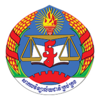Bachelor of Science in Digital Economy
Type : Undergraduate Program
Faculty : Faculty of Digital Economy
Department : Digital Economy
Level : Bachelor’s Degree
1. Objective
The bachelor program aims to produce qualified graduates to guide business and consumers to understand the potential benefits of the digital economy. More specifically, it aims:
– To provide a critical overview of digital economic practices and models, with a specific focus on key concepts and theories required to understand the changes brought about by digitalization in the cultural industries and in the audiences;
– To provide students with a range of opportunities to reflect on the impact and challenges of new technologies through seminar courses;
– To explain the technological and social changes underlying the growth of the digital economy, especially in relation to audiences as active users and producers of economic activity.
2. Program Learning Outcomes: PLO
On successful completion program students will be able to:
A. Knowledge
PLO1: Identify and explore the challenges of a digital economy using data
PLO2: Assess the strengths and limitations of digital economic models
PLO3: Apply key theories and concepts to case studies and recent innovations in the digital economy
B. Cognitive Skills
PLO4: Evaluate information of various sources
PLO5: Process the information to identify the real-world problems
PLO6: Efficiently analyze the data and provide solution to the real-world problems
C. Interpersonal Skills and Responsibility
PLO7: Become dependable person in any given situation
PLO8: Become proactive team players in assigned teamwork
PLO9: Possess a strong leadership skill
D. Numerical Skills, Information Technology and Communication
PLO10: Use computer digital technologies to conduct data analysis
PLO11: Use basic statistics for quantitative research
PLO12: Use computer programming skills to design apps.
3. Admission Requirements
Candidates to be selected in this program:
– Must hold a high school certificate with acceptable grade set by the National University of Management or equivalence
– Must earn a passing score of the comprehensive English test or a required English certificate
4. Credit System
Students of Bachelor of Science in Digital Economy must undertake the four-year program and must earn a minimum of 120 credits. Students are encouraged to take additional online courses of their interests in addition to the courses provided by the university using facilities at the smart classrooms and digital economy lab.
5. Courses
Basic Major Subjects
Microeconomics
Sustainable Cities
Fundamentals for Finance
Research Methodology
Environmental Science
Introduction to Financial Technology
Data Management
Internet of Things
Information Systems & Innovation in Smart Cities
Quantitative Analysis Using STATA
Financial Risk and Insurance
E-Logistics Management
Core Major Subjects
Cambodia’s Digital Economy Development
Macroeconomics
Statistics for Business and Economics
Introduction to Digital Economy
Apps Development I
Law & Public Policy for Business
App Development II
Development Economics
App Development III
International Trade and Finance
Financial Markets and Regulations
E-Commerce
Business Start-Up
Security Management & Data Privacy
Research Seminar
Growth Theory
Macro-economic Modelling (Computable General Equilibrium)
Artificial Intelligence
Public Finance in Digital Age
Subjects for General Education
Introduction to Computer Science
Mathematics for Business and Economics
Critical Thinking
Creative Writing and Communication
6. Structure of the Program
Year 1
| Semester 1 | Semester 2 | ||
|---|---|---|---|
| Course | Credit | Course | Credit |
| 1.Microeconomics | 3 | 1.Microeconomics | 3 |
| 2. Introduction to Computer Science | 3(2.0.1) | 2. Statistics for Business and Economics | 3 |
| 3. Mathematics for Business and Economics | 3 | 3. Introduction to Digital Economy | 3 |
| 4. Cambodia’s Digital Economy Development | 3 | 4. Creative Writing and Communication | 3 |
| 5. Critical Thinking | 3 | 5. App Development I | 3(2.0.1) |
| Total | 15 | Total | 15 |
Year 2
| Semester 3 | Semester 4 | ||
|---|---|---|---|
| Course | Credit | Course | Credit |
| 1. Law & Public Policy for Business | 3 | 1. Introduction to Financial Technology | 3(2.0.1) |
| 2. App Development II | 3 | 2. App Development III | 3 |
| 3. Sustainable Cities | 3(2.0.1) | 3. Environmental Science | 3 |
| 4. Fundamentals of Finance | 3 | 4. Research Methodology | 3 |
| 5. Development Economics | 3 | 5. International Trade and Finance | 3 |
| Total | 15 | Total | 15 |
Year 3
| Semester 5 | Semester 6 | ||
|---|---|---|---|
| Course | Credit | Course | Credit |
| 1. Data Management | 3 | 1. Quantitative Analysis Using STATA | 3 |
| 2. Internet of Things | 3(2.0.1) | 2. Business Start-Up | 3(2.0.1) |
| 3. Information Systems & Innovation in Smart Cities | 3 | 3. Security Management & Data Privacy | 3 |
| 4. Financial Markets and Regulations | 3 | 4. Financial Risk and Insurance | 3 |
| 5. E-Commerce | 3 | 5. E-Logistic Management | 3 |
| Total | 15 | Total | 15 |
Year 4
| Semester 7 | Semester 8 | ||
|---|---|---|---|
| Course | Credit | Course | Credit |
| 1. Research Seminar | 3 | 1. Thesis Writing | 3 |
| 2. Growth Theory | 3 | 2. Internship | 3 |
| 3. Macro-economic Modelling (Computable General Equilibrium) | 3 | 4. Study Tour | 1 |
| 5. Artificial Intelligence | 3(2.0.1) | ||
| 6. Public Finance in Digital Age | 3 | ||
| Total | 15 | Total | 6 |
7. Graduation Requirements
To successfully complete the program, students must earn a minimum of 120 credits.
8. Degree Offered:
Bachelor of Science in Digital Economy
9. Career Perspectives
Graduates of this program will be able to work in the following fields:
– Data Scientist
– Business Analyst
– IT Consultant
– Project Coordinator
– Economist.
